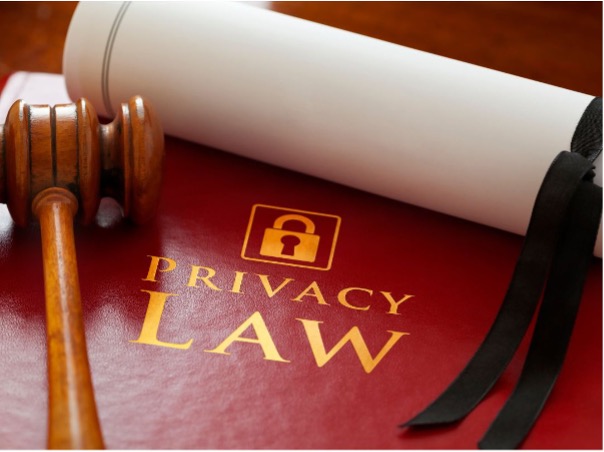A number of misconceptions cloud the issue of privacy laws. Many believe that these laws give them complete control over their personal data or provide universal protection against surveillance. The truth, however, is considerably more complex. While privacy laws do aim at safeguarding the rights of individuals, they work within complex frameworks that often leave gaps in protection.
This blog seeks to break down common myths about privacy laws, clarify what they truly protect, and highlight areas where they fall short. By understanding the scope and limitations of these laws, individuals can better navigate the digital world and advocate for stronger safeguards.
Myth 1: Privacy Laws Prevent All Data Collection
Reality: Privacy laws do not actually prevent organizations from collecting data. Rather, they constrain how data is collected, stored, and used. For example, the European Union's General Data Protection Regulation requires businesses to get consent before collecting personal data. That does not mean that companies cannot collect data, but they must disclose their practices and obtain user consent.
Further, some forms of data collection are also exempt from privacy laws. For instance, many governments have wider powers to collect information in the name of national security, for which normal protections do not apply.
Myth 2: Privacy Laws Are Universal
Reality: Privacy laws differ from country to country, and often even from region to region. While some jurisdictions like the European Union have imposed strict regulations, others, like the United States, use a sectoral approach. For example, the U.S. has laws like HIPAA for healthcare data and COPPA for children's online privacy but does not have a broad federal privacy law.
This patchwork approach means protections can vary wildly depending on where you live or where your data is processed. For example, a user's data may be protected under GDPR if it's processed in Europe but enjoy fewer safeguards if it's handled elsewhere.

Myth 3: Deleting Your Data Ensures Privacy
Reality: Deleting your account or data does not always guarantee complete removal. While many privacy laws around the world require companies to delete data upon request, there are usually loopholes that allow organizations to retain anonymized or aggregated data for analytics.
In addition, backup systems and third-party sharing make things more complicated. Your data may still exist in archived databases, or be retained by third parties who obtained it before your deletion request.

Myth 4: Privacy Laws Prevent Government Surveillance
Reality: Most of the privacy laws regulate business activities instead of keeping government surveillance activities in check. Most legal regimes usually allow exemptions with regard to areas of concern to national security, law enforcement, and public safety.
For example, the USA PATRIOT Act provides wide latitude for data collection and surveillance on the part of U.S. authorities, while the Investigatory Powers Act in the UK grants wide-ranging powers of access to communications data. This often happens outside of normal privacy regulations.

Myth 5: Stronger Privacy Laws Mean Complete Security
Reality: Not even the most robust privacy laws can eliminate all risks. Cyberattacks, insider threats, and human errors can lead to data breaches despite stringent regulations.
Besides, laws like the GDPR and CCPA are based on enforcement. Resource constraints or lack of reporting can impede their effectiveness, therefore letting violations go unnoticed.

What Privacy Laws Do Well
Despite their limitations, privacy laws have made significant strides in safeguarding individual rights:
- Transparency: Laws like GDPR require organizations to be upfront about their data practices, empowering users to make informed decisions.
- Consent: Most modern regulations emphasize obtaining user consent before collecting or processing personal data.
- Control: Laws often provide mechanisms for individuals to access, modify, or delete their data.
- Accountability: Companies have sanctions for non-compliance, which encourages better behavior.
These provisions help form a basis of trust and responsibility in the digital era.

Where Privacy Laws Fall Short
- Cross-Border Data Transfers: The internet is global. Data sent across jurisdictions may lose their protection.
- Emerging Technologies: Regulations often lag behind advancements in AI, IoT, and biometrics, leaving gaps in coverage.
- Awareness and Enforcement: Many individuals are unaware of their rights under privacy laws, and enforcement agencies often lack resources to pursue violations.
- Limited Scope: Privacy laws primarily focus on personal data, neglecting broader issues like algorithmic biases and mass surveillance.

How to Protect Yourself Beyond Privacy Laws
It is not enough to depend on privacy laws. One has to be more proactive in securing data:
- Utilize Privacy Tools: Make use of VPNs, encrypted messaging applications, and privacy-oriented browsers.
- Be Skeptical: Read through the terms and conditions before sharing information.
- Enable Security Features: Use strong passwords, two-factor authentication, and regular software updates.
- Educate Yourself: Stay informed about privacy trends and best practices.
By supplementing personal vigilance with legal protections, individuals can achieve a much more comprehensive approach to privacy.
Advocating for Better Privacy Protections
Changes in privacy laws take community action:
- Support Advocacy Groups: The Electronic Frontier Foundation (EFF) and Privacy International are just two groups that work hard to reinforce the rights to privacy.
- Engage Policymakers: Advocate for broad and future-oriented privacy laws.
- Raise Awareness: Disseminate understanding of privacy rights and responsible behaviors in your community.
A collective effort can close the gaps in the existing regulations and make sure that they keep pace with changes in technology.
Conclusion: Maneuvering the Landscape of Privacy
While the law gives important protections, it is not a panacea. Understanding what the law can and cannot do empowers each individual to make informed decisions about their personal data and to take additional steps when necessary to protect that data. Myths debunked and stronger protections called for—we can better navigate the digital era with confidence.
Privacy is everybody's responsibility. While laws may provide the backbone, true protection requires a vigilant attitude, education, and collective action. Only together can we ensure that the right to privacy continues to be a cornerstone in this ever-connected world.
